As 2024 draws to a close, sustainable travel has firmly established itself as the mantra of modern globetrotters, with homestays at the heart of this green movement. From misty hills to sprawling tea estates and tranquil riversides, these
have become sanctuaries for travellers seeking authentic connections with nature and a more meaningful way to explore the world.
This year, homestays have not only transformed the travel experience but also championed local cultures and eco-conscious living like never before.
Here are 10 incredible sustainable homestays in India, each with a fascinating backstory and a commitment to preserving the environment.
Advertisement
Located near the famed Kaziranga National Park, Medini Homestay is the brainchild of Champak Deka and his wife, Anna Louise Meynell. It was created as a sanctuary for eco-conscious travellers eager to explore Assam’s vibrant wildlife and culture. The property prioritises natural materials, solar energy, and organic food.
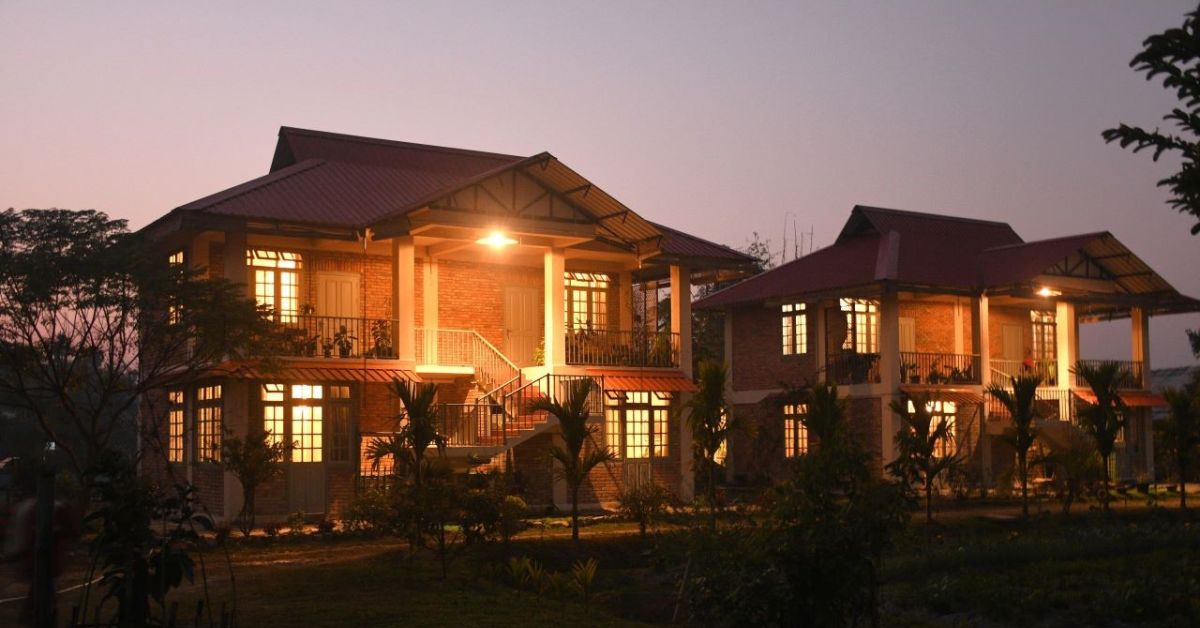
Eco-conscious travellers can explore Assam’s wildlife and culture at Medini Homestay.
Medini also encourages guests to connect with local communities and partake in Assamese traditions. Additionally, Anna has set up a weaving studio that has sparked conversations around hand-woven textiles. You can also witness their cruelty-free silk production techniques.
It’s truly a window into natural wonders. Read more .
Advertisement
“Maybe what I really want is to be near the river.” Born from Depi Chaudhry’s longing to live near nature, Aashraya on the Ganga combines tranquillity and sustainability. Nestled 45 km from Rishikesh, this eco-friendly retreat features solar-powered cottages surrounded by over a thousand trees.
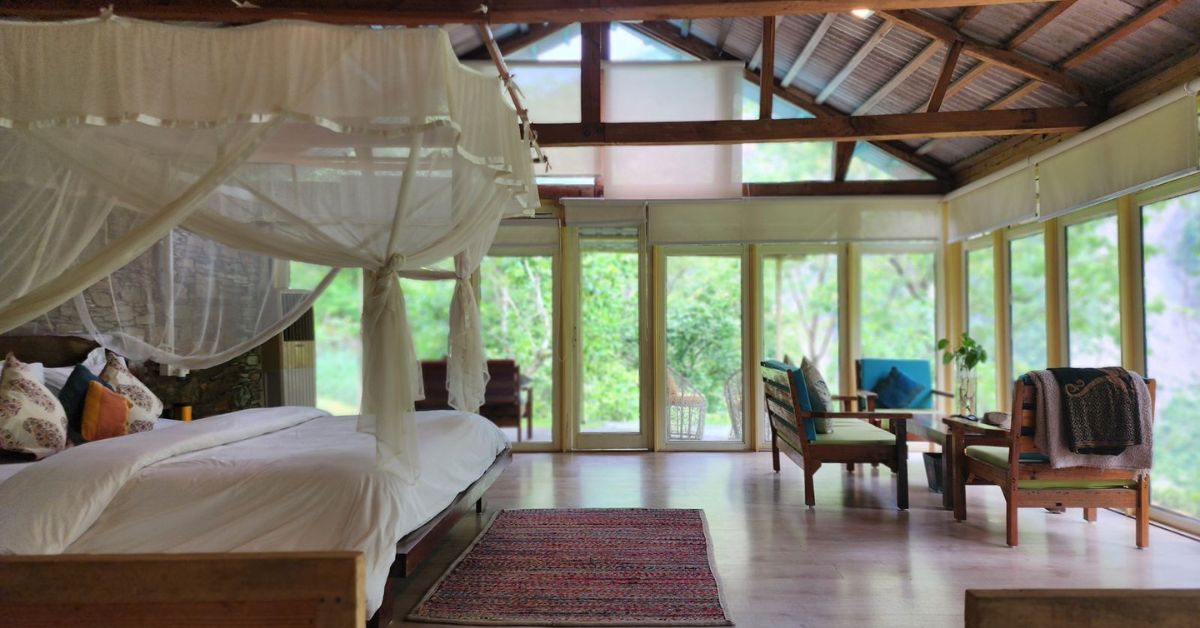
Aashraya on the Ganga features solar-powered cottages.
The homestay embodies sustainability, with food waste composted in just five days and recycled water nourishing lush gardens. The cottages, named after river tributaries, are a heartfelt tribute to Depi’s daughters. A scenic 2.2 km trek leads to this sanctuary where nature, luxury, and sustainability converge.
A coolness engulfs every guest who sets foot on the property. Read more .
Advertisement
This quaint homestay in Panchgani is run by a dynamic mother-daughter duo, Alka Shesha and Prachi Chaphekar. They have transformed their river-view property into a haven for nature lovers with solar power, organic farming, and rainwater harvesting at the core of their operations.
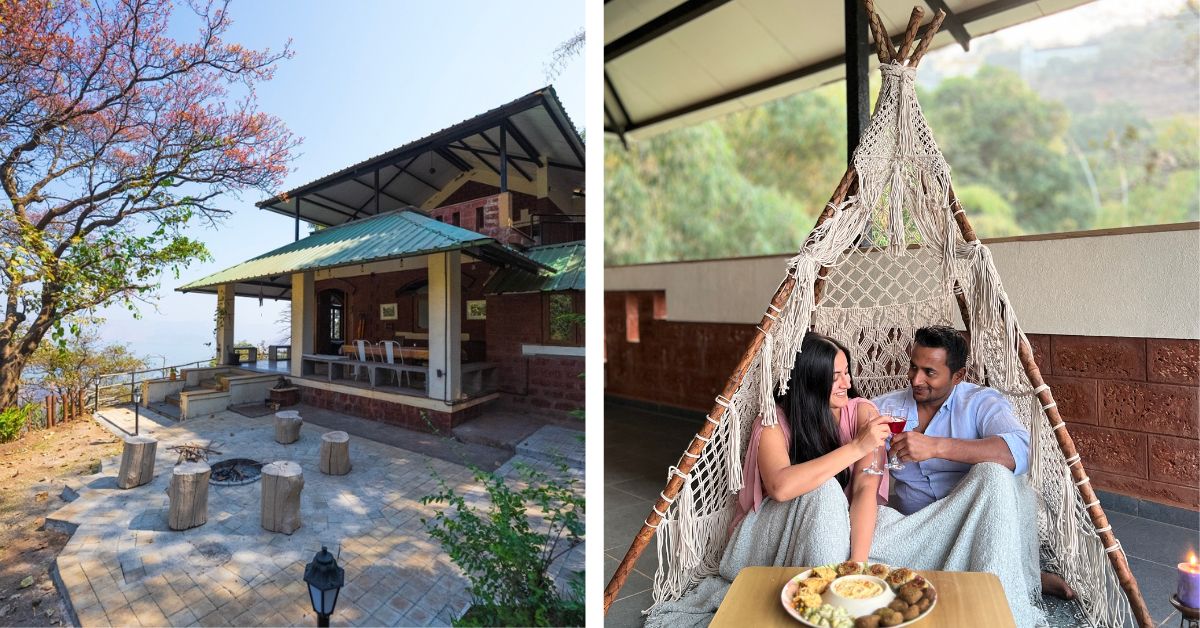
Avabodha gives you a stunning view of the Krishna River.
Guests can enjoy breathtaking sunsets, delectable organic meals, and serene riverside walks along the Krishna River. “This is a wonderful place to reconnect with your inner self,” says Alka.
It’s the perfect choice for weekend getaways. Read more .
Advertisement
Set amidst the serene Nilgiris, O’land Plantation Stay is a 120-acre eco-retreat founded by Vinati and Pavan Sukhdev. Featuring bungalows built with sustainable materials like CSEB blocks and solar panels, this property blends colonial charm with modern comforts.
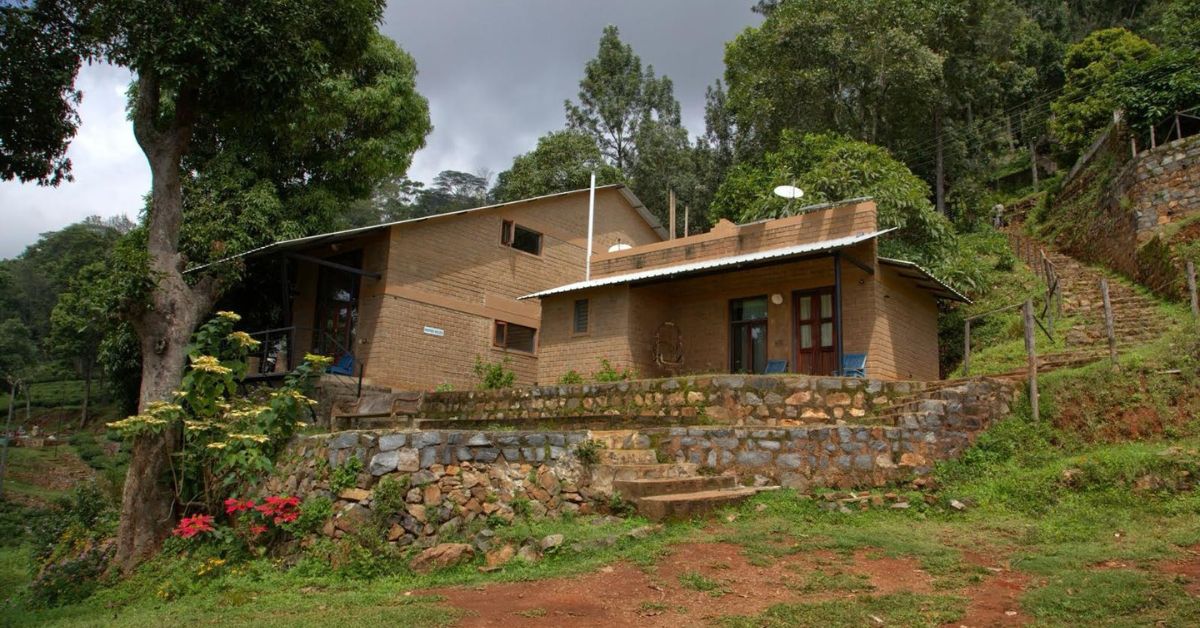
The O’Land Plantation Stay in Coonoor is set against the backdrop of the Niligiri mountains.
Guests can explore tea plantations, savour tea-tasting sessions, and witness exotic wildlife, including the Great Indian Hornbill. “Tourism can be responsible,” says Vinati, reaffirming the ethos of this sanctuary that preserves the region’s ecosystem. A visit here is an invitation to relax, reconnect, and tread lightly on the planet.
A nature lover’s dream destination, isn’t it? Read more .
Advertisement
Perched in the serene hills of Pothayadi village, Muthunandhini Palace is a harmonious blend of Tamil, Venad, and Chettinad architecture, designed by Rajchandar Padmanaban and his wife, Naga Jeyalakshmi. This eco-friendly homestay features over 100-year-old artefacts, 50 upcycled antique windows, and natural cooling systems thanks to its mud and clay construction.
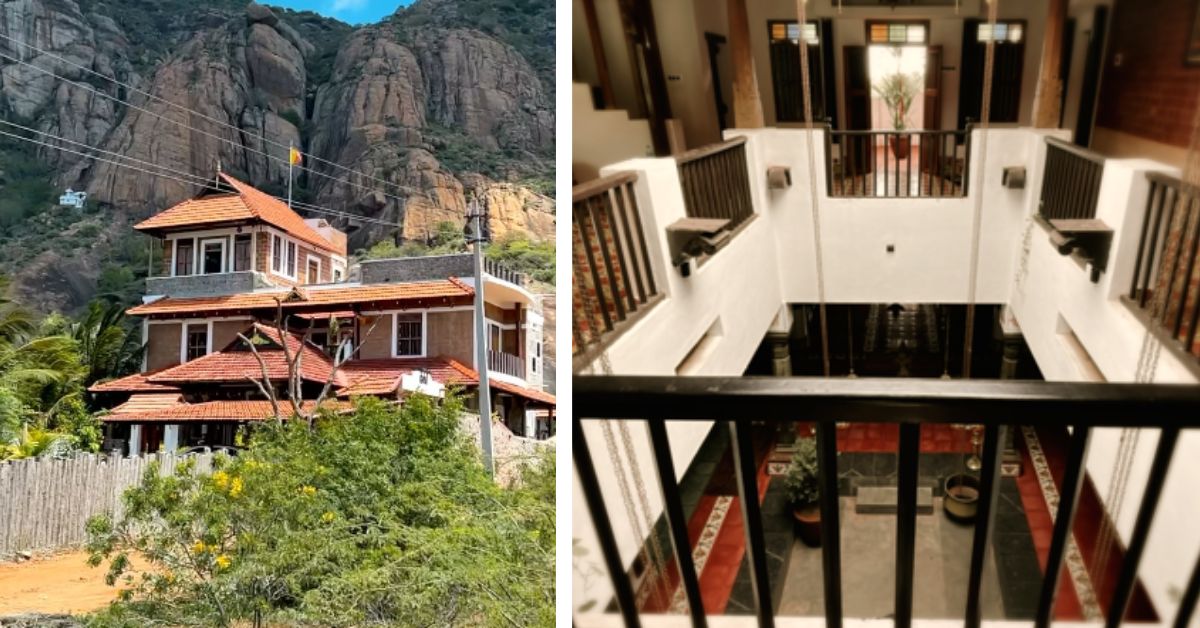
Muthunandhini Palace has artefacts as old as 100 years.
Sustainability shines through practices like composting, organic gardening, rainwater harvesting, and the use of eco-friendly Athangudi tiles. “We wanted to make the very roots of our home eco-friendly,” shares Rajchandar. Guests are treated to authentic meals, cultural heritage, and a home that feels like their own.
The ‘mud palace’ offers an immersive nature retreat. Read more .
Greenara Mud Homestay stands as a testament to nature’s restorative power. Located on a plot once barren due to mining, Mustafa worked tirelessly to convert the land into a thriving forest. Surrounded by seven water bodies, the homestay is the natural getaway of your dreams.
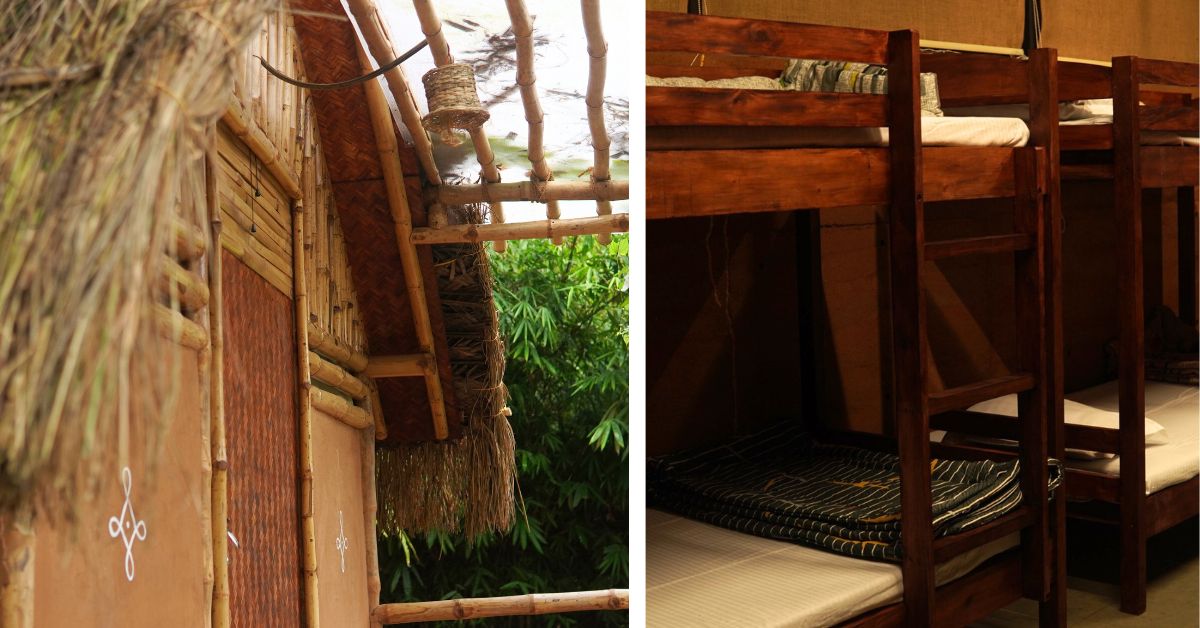
Greenaura is surrounded by seven water bodies.
The property features eco-friendly mud architecture and sources all food locally. Guests can experience the joy of staying amidst lush greenery while learning about reforestation and sustainable living.
“Our philosophy revolves around respecting nature,” Mustafa says. Read more .
Tucked amidst the sprawling vineyards of Nashik, Adiem Kaanan Farmstay is a six-acre eco-retreat built using locally sourced bamboo and mud. Founded by Madhu Chougaonkar and her daughter Disha, this homestay champions sustainability with solar power, rainwater harvesting systems (with a 32,000-litre capacity), and organic farming practices.
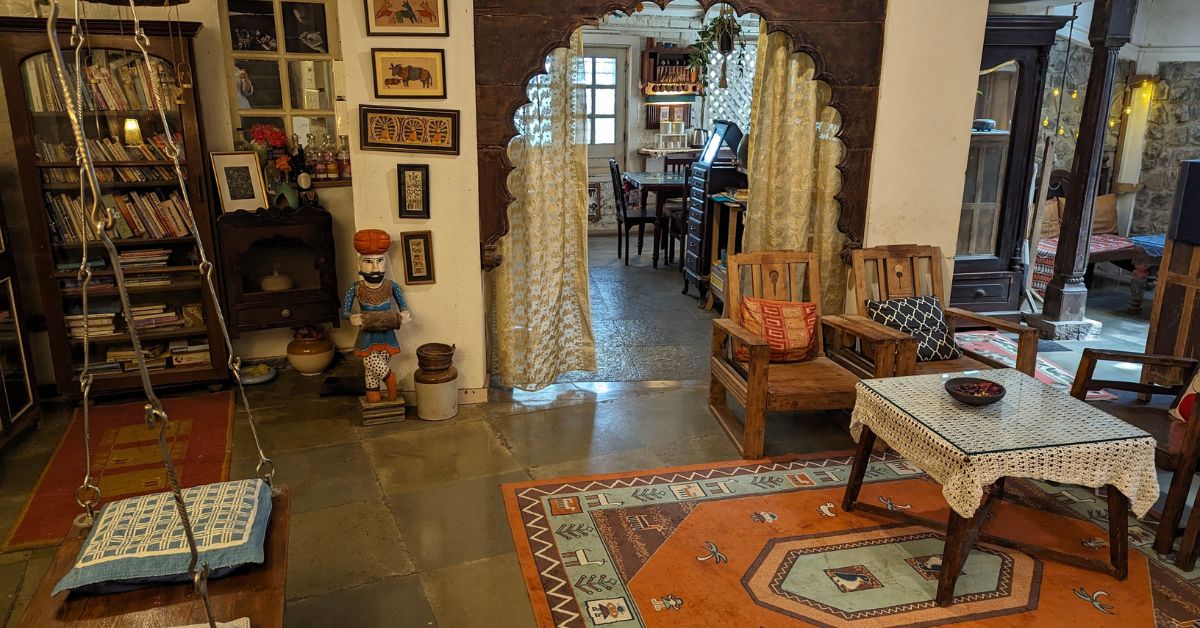
The Adiem City Homestay is built with mud and features recycled decor in every corner of the house.
Guests can savour homegrown delights like lychee sauce and blue flower rice, or indulge in fruit plucking and birdwatching. “Sustainability needs to be a way of life,” says Disha, echoing the family’s ethos. With its serene setting and eco-conscious practices, Adiem Kaanan offers a vacation that’s as enriching as it is rejuvenating.
The farm is filled with over 2,000 trees! Read more .
Surrounded by 2,000 thriving Alphonso mango trees, Ranade Homestay in Ratnagiri offers a unique agro-tourism experience. Founded by Ganesh Ranade, this 40-acre farm stay combines organic farming with hospitality. Guests can climb trees, pluck ripe mangoes, and learn about sustainable practices like neem-based pesticides and composting.
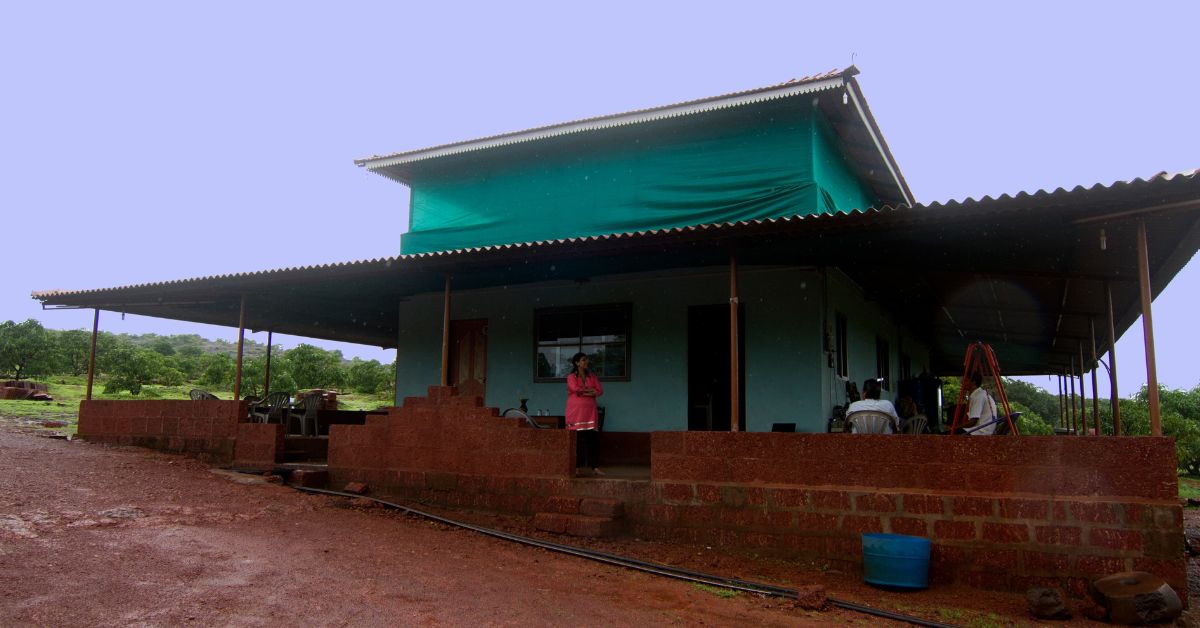
The Ranade homestay is built in typical Maharashtrian style and is in the midst of paddy and mango plantations.
The homestay features authentic mud rooms and serves mango-infused delicacies like aamras and chutneys. “Agrotourism is beneficial because you get direct customers for your products,” says Ganesh.
The retreat is perfect for mango lovers and nature enthusiasts. Read more .
Set deep within the forests of Rishikesh, Tiny Farm Fort feels like stepping into a storybook. Built by 90 volunteers from 18 countries using cob — a blend of clay, sand, and straw — this eco-friendly marvel was designed by architect brothers Raghav and Ansh Kumar.
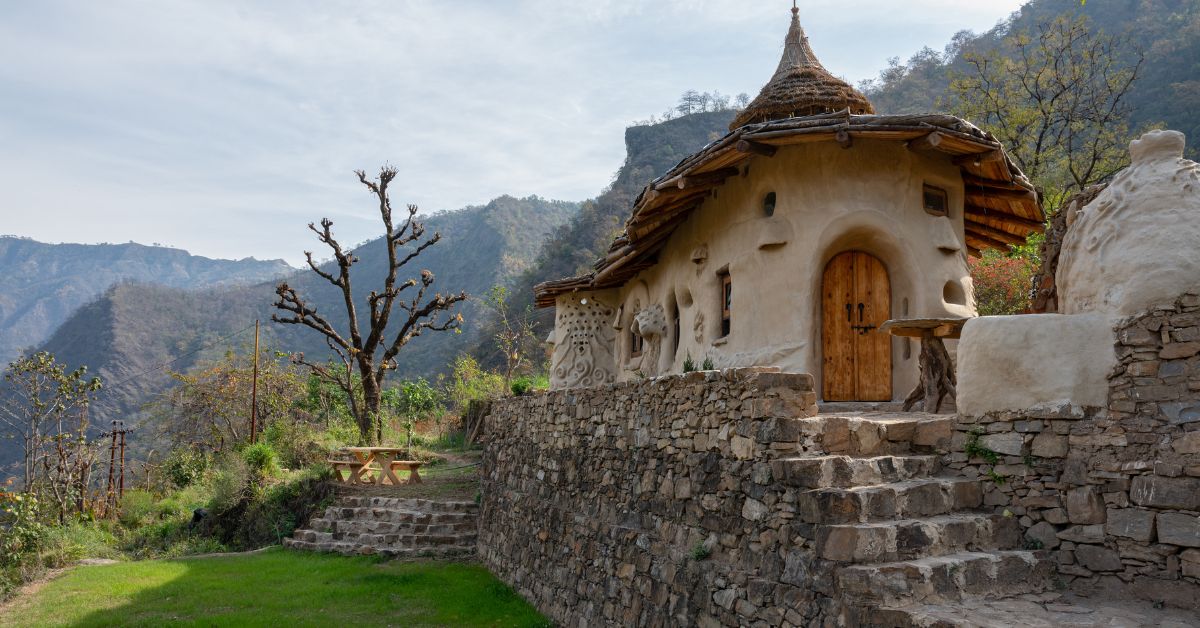
Raghav and Ansh’s ‘Tiny Farm Fort’ is reminiscent of Hagrid’s abode, as shown in ‘Harry Potter’.
Featuring 19-inch mud walls, a rooftop garden, and handcrafted décor like driftwood chandeliers, the fort balances sustainability and charm. Guests can relish foraging adventures, brew kombucha, or enjoy cosy candlelit dinners while soaking in breathtaking views of the Ganges.
“We see this house as a museum where we exhibit products and materials of different designers working with waste or biodegradable biomaterials,” the brothers say.
This fairy tale home is probably the escape you need. Read more .
Sankalp Sharma’s Vinyasa Earth is more than just a homestay; it’s a creative retreat for artists and eco-enthusiasts. Built by dancers and constructed using bamboo, mud, cob, and lime, this Jaipur homestay offers art residencies and workshops. The moment you enter the cottage, you feel warm. At the same time, in summer, the cottages feel six to seven degrees cooler.
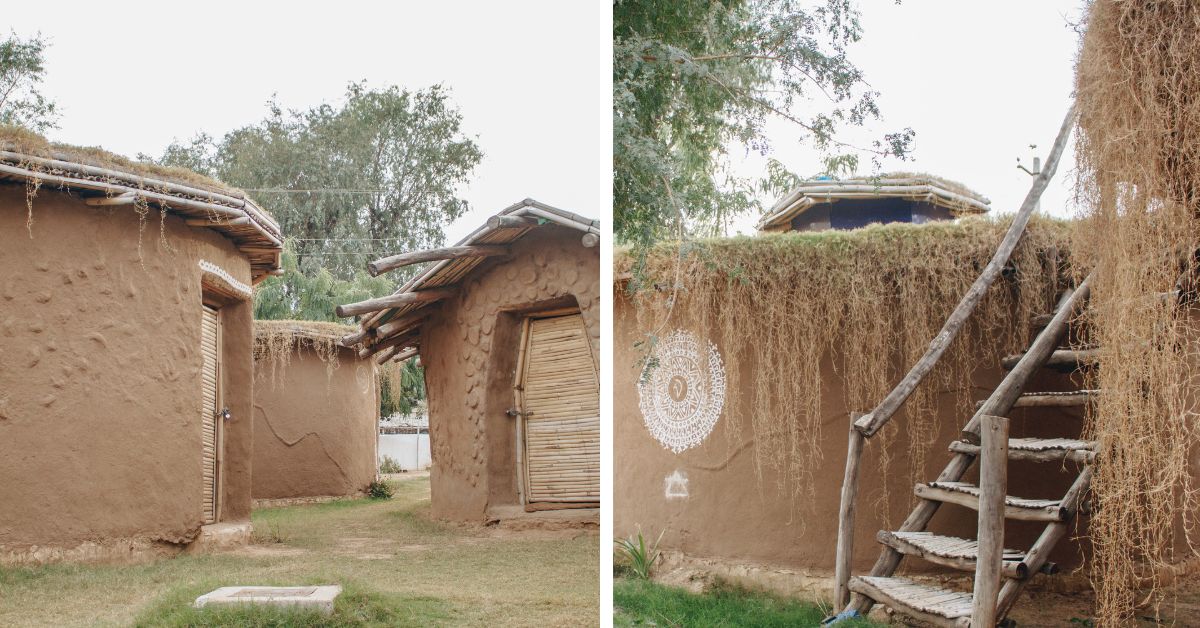
The cottages at Vinyasa Earth are built using mud, cow dung, hay, and lime.
Sankalp says, “Vinyasa Earth is a space for creative minds to come together and celebrate sustainability.” Guests can indulge in sustainable living experiences while engaging with the local creative community. Sankalp’s mission is to make the property a hub for art and eco-awareness.
Ready to get your creative juices flowing? Read more .
Edited by Khushi Arora
This year, homestays have not only transformed the travel experience but also championed local cultures and eco-conscious living like never before.
Here are 10 incredible sustainable homestays in India, each with a fascinating backstory and a commitment to preserving the environment.
Advertisement
1. Medini Homestay, Kaziranga National Park, Assam
Located near the famed Kaziranga National Park, Medini Homestay is the brainchild of Champak Deka and his wife, Anna Louise Meynell. It was created as a sanctuary for eco-conscious travellers eager to explore Assam’s vibrant wildlife and culture. The property prioritises natural materials, solar energy, and organic food.

Eco-conscious travellers can explore Assam’s wildlife and culture at Medini Homestay.
Medini also encourages guests to connect with local communities and partake in Assamese traditions. Additionally, Anna has set up a weaving studio that has sparked conversations around hand-woven textiles. You can also witness their cruelty-free silk production techniques.
It’s truly a window into natural wonders. Read more .
Advertisement
2. Aashraya on the Ganga, Rishikesh, Uttarakhand
“Maybe what I really want is to be near the river.” Born from Depi Chaudhry’s longing to live near nature, Aashraya on the Ganga combines tranquillity and sustainability. Nestled 45 km from Rishikesh, this eco-friendly retreat features solar-powered cottages surrounded by over a thousand trees.

Aashraya on the Ganga features solar-powered cottages.
The homestay embodies sustainability, with food waste composted in just five days and recycled water nourishing lush gardens. The cottages, named after river tributaries, are a heartfelt tribute to Depi’s daughters. A scenic 2.2 km trek leads to this sanctuary where nature, luxury, and sustainability converge.
A coolness engulfs every guest who sets foot on the property. Read more .
Advertisement
3. Avabodha, Panchgani, Maharashtra
This quaint homestay in Panchgani is run by a dynamic mother-daughter duo, Alka Shesha and Prachi Chaphekar. They have transformed their river-view property into a haven for nature lovers with solar power, organic farming, and rainwater harvesting at the core of their operations.

Avabodha gives you a stunning view of the Krishna River.
Guests can enjoy breathtaking sunsets, delectable organic meals, and serene riverside walks along the Krishna River. “This is a wonderful place to reconnect with your inner self,” says Alka.
It’s the perfect choice for weekend getaways. Read more .
Advertisement
4. O’land Plantation Stay, Coonoor, Tamil Nadu
Set amidst the serene Nilgiris, O’land Plantation Stay is a 120-acre eco-retreat founded by Vinati and Pavan Sukhdev. Featuring bungalows built with sustainable materials like CSEB blocks and solar panels, this property blends colonial charm with modern comforts.

The O’Land Plantation Stay in Coonoor is set against the backdrop of the Niligiri mountains.
Guests can explore tea plantations, savour tea-tasting sessions, and witness exotic wildlife, including the Great Indian Hornbill. “Tourism can be responsible,” says Vinati, reaffirming the ethos of this sanctuary that preserves the region’s ecosystem. A visit here is an invitation to relax, reconnect, and tread lightly on the planet.
A nature lover’s dream destination, isn’t it? Read more .
Advertisement
5. Muthunandhini Palace, Kanyakumari, Tamil Nadu
Perched in the serene hills of Pothayadi village, Muthunandhini Palace is a harmonious blend of Tamil, Venad, and Chettinad architecture, designed by Rajchandar Padmanaban and his wife, Naga Jeyalakshmi. This eco-friendly homestay features over 100-year-old artefacts, 50 upcycled antique windows, and natural cooling systems thanks to its mud and clay construction.

Muthunandhini Palace has artefacts as old as 100 years.
Sustainability shines through practices like composting, organic gardening, rainwater harvesting, and the use of eco-friendly Athangudi tiles. “We wanted to make the very roots of our home eco-friendly,” shares Rajchandar. Guests are treated to authentic meals, cultural heritage, and a home that feels like their own.
The ‘mud palace’ offers an immersive nature retreat. Read more .
6. Greenara Mud Homestay, Kerala
Greenara Mud Homestay stands as a testament to nature’s restorative power. Located on a plot once barren due to mining, Mustafa worked tirelessly to convert the land into a thriving forest. Surrounded by seven water bodies, the homestay is the natural getaway of your dreams.

Greenaura is surrounded by seven water bodies.
The property features eco-friendly mud architecture and sources all food locally. Guests can experience the joy of staying amidst lush greenery while learning about reforestation and sustainable living.
“Our philosophy revolves around respecting nature,” Mustafa says. Read more .
7. Adiem Kaanan Farmstay, Nashik, Maharashtra
Tucked amidst the sprawling vineyards of Nashik, Adiem Kaanan Farmstay is a six-acre eco-retreat built using locally sourced bamboo and mud. Founded by Madhu Chougaonkar and her daughter Disha, this homestay champions sustainability with solar power, rainwater harvesting systems (with a 32,000-litre capacity), and organic farming practices.

The Adiem City Homestay is built with mud and features recycled decor in every corner of the house.
Guests can savour homegrown delights like lychee sauce and blue flower rice, or indulge in fruit plucking and birdwatching. “Sustainability needs to be a way of life,” says Disha, echoing the family’s ethos. With its serene setting and eco-conscious practices, Adiem Kaanan offers a vacation that’s as enriching as it is rejuvenating.
The farm is filled with over 2,000 trees! Read more .
8. Ranade Homestay, Ratnagiri, Maharashtra
Surrounded by 2,000 thriving Alphonso mango trees, Ranade Homestay in Ratnagiri offers a unique agro-tourism experience. Founded by Ganesh Ranade, this 40-acre farm stay combines organic farming with hospitality. Guests can climb trees, pluck ripe mangoes, and learn about sustainable practices like neem-based pesticides and composting.

The Ranade homestay is built in typical Maharashtrian style and is in the midst of paddy and mango plantations.
The homestay features authentic mud rooms and serves mango-infused delicacies like aamras and chutneys. “Agrotourism is beneficial because you get direct customers for your products,” says Ganesh.
The retreat is perfect for mango lovers and nature enthusiasts. Read more .
9. Tiny Farm Fort Homestay, Rishikesh, Uttarakhand
Set deep within the forests of Rishikesh, Tiny Farm Fort feels like stepping into a storybook. Built by 90 volunteers from 18 countries using cob — a blend of clay, sand, and straw — this eco-friendly marvel was designed by architect brothers Raghav and Ansh Kumar.

Raghav and Ansh’s ‘Tiny Farm Fort’ is reminiscent of Hagrid’s abode, as shown in ‘Harry Potter’.
Featuring 19-inch mud walls, a rooftop garden, and handcrafted décor like driftwood chandeliers, the fort balances sustainability and charm. Guests can relish foraging adventures, brew kombucha, or enjoy cosy candlelit dinners while soaking in breathtaking views of the Ganges.
“We see this house as a museum where we exhibit products and materials of different designers working with waste or biodegradable biomaterials,” the brothers say.
This fairy tale home is probably the escape you need. Read more .
10. Vinyasa Earth, Jaipur, Rajasthan
Sankalp Sharma’s Vinyasa Earth is more than just a homestay; it’s a creative retreat for artists and eco-enthusiasts. Built by dancers and constructed using bamboo, mud, cob, and lime, this Jaipur homestay offers art residencies and workshops. The moment you enter the cottage, you feel warm. At the same time, in summer, the cottages feel six to seven degrees cooler.

The cottages at Vinyasa Earth are built using mud, cow dung, hay, and lime.
Sankalp says, “Vinyasa Earth is a space for creative minds to come together and celebrate sustainability.” Guests can indulge in sustainable living experiences while engaging with the local creative community. Sankalp’s mission is to make the property a hub for art and eco-awareness.
Ready to get your creative juices flowing? Read more .
Edited by Khushi Arora
